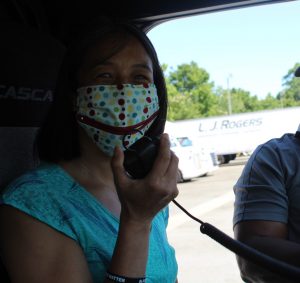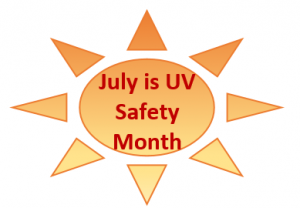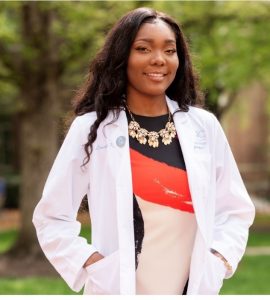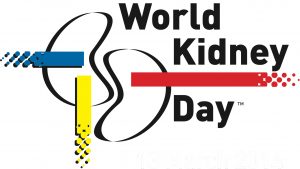Keep Up With the KEOP
Highway to Health: Kidney Disease with Dr. Emily Chang
 As we continue to experience the COVID-19 pandemic, it is even more important to get health information out to our community in ways that don’t require in-person events. When will the next health fair or the next church gathering occur? In the meantime, we strive to continue educating our citizens about kidney disease, the risk factors, and things to do to prevent chronic kidney disease. Education is key to taking action. Our own Dr. Emily Chang provided a wealth of information to truck drivers during a radio interview called “Highway to Heath” on the RadioNemo radio show where she covered kidney disease, kidney stones, and hydration. This trucking business, led by Dave Nemo, has been getting the word out about trucker health before it was popular to do so. Their role in creating industry awareness of health concerns has been described as invaluable. In times when we cannot participate in a community conversation about kidney disease, or cannot drive a few hours to conduct a kidney disease screening at a health fair, radio shows can disseminate critical health information to a wide range of people across the country. Trucking businesses can play a key role in outreach and wellness. For more information on the RadioNemo show, click here.
As we continue to experience the COVID-19 pandemic, it is even more important to get health information out to our community in ways that don’t require in-person events. When will the next health fair or the next church gathering occur? In the meantime, we strive to continue educating our citizens about kidney disease, the risk factors, and things to do to prevent chronic kidney disease. Education is key to taking action. Our own Dr. Emily Chang provided a wealth of information to truck drivers during a radio interview called “Highway to Heath” on the RadioNemo radio show where she covered kidney disease, kidney stones, and hydration. This trucking business, led by Dave Nemo, has been getting the word out about trucker health before it was popular to do so. Their role in creating industry awareness of health concerns has been described as invaluable. In times when we cannot participate in a community conversation about kidney disease, or cannot drive a few hours to conduct a kidney disease screening at a health fair, radio shows can disseminate critical health information to a wide range of people across the country. Trucking businesses can play a key role in outreach and wellness. For more information on the RadioNemo show, click here.
July – National UV Safety Month
A blog post from Lauren Creecy, PharmD/MPH Candidate 2020

More than one million cases of skin cancer are diagnosed each year. Radiation from the sun is the primary cause of skin cancer. The ultraviolet radiation produced from the sun can damage DNA (genes) in the cells of the body, causing genetic changes that can lead to cancer. Although people with fairer skin are more prone to sunburn, the risks are not eliminated for people of darker complexions. Patients taking medications such as hydrochlorothiazide, furosemide, and antibiotics like fluoroquinolones and tetracyclines, must take certain precautions to protect their skin from exposure to the sun. This is especially true for patients on immunosuppressive medications that can also make the skin more sensitive to the sun. Immunocompromised individuals have a greater risk of developing skin cancer. There are several steps that can be taken to protect you from the sun and minimize your risk of developing skin cancer.
1. Time spent in the sun should be limited, especially during the hours of 10 am to 4 pm. During these hours, sunlight intensity is the greatest.
2. Sunscreen should be applied 15-30 minutes before sun exposure with reapplication at least every 2 hours and after contact with water. Choice of sunscreen should have a sun protection factor (SPF) of 30 or higher, being sure to check the expiration date.
3. In addition to sunscreen, protective clothing such as wide brim hats, sunglasses, long sleeves, and lightweight pants can also offer protection from the sun’s harmful rays. Cotton, linen, and other fabrics are lightweight for the summer.
4. Stay hydrated with water instead of sugary drinks (sodas, juices). Most patients should drink at least 8 glasses of water per day. Other patients should balance their fluid intake being sure to adhere to fluid restrictions recommended by your doctor.
5. If you do develop a sunburn, be sure to clean blisters gently with mild soap and water. Tylenol and aloe vera-based products can offer relief of pain and discomfort. Patients with kidney disease should avoid over-the-counter pain relievers such as ibuprofen (Motrin, Advil) and naproxen (Aleve), which can worsen kidney disease and hypertension.
Before taking a vacation, be sure to plan your trip around dialysis sessions or other medical appointments, making sure to pack extra supplies and medicine. Check with your doctor or nurse navigator to determine appropriate ways to protect your vascular access (catheter, fistula) while swimming, usually with a protective dressing. Dressings should be changed after contact with water. Also, try to avoid ponds, lakes, rivers, and other unchlorinated water sources that can increase your risk for developing an infection. The Sun contains just as much UV radiation in the summer as in the fall and winter, so be sure to practice using sun protection throughout the year. Most skin cancers, if discovered and treated early, can be cured. It is important to inform your doctor if you notice any new marks on your skin, especially ones that are bleeding, changing appearance, are growing in size, or wounds that will not completely heal.
April – National Donate Life Month
A blog post from Lauren Creecy, PharmD/MPH Candidate 2020 
In honor of April being National Donate Life month, I would like to share my story about my path to transplantation, with the hopes of encouraging others to become organ donors or let go of their fear toward transplantation. I have experienced two kidney transplants, with the possibility of needing another, but I never lose faith in my journey.
The Need:
To share a little information about the great need for organ, eye, and tissue donors in the United States: Currently, there are over 113,000 people awaiting lifesaving organ transplants.1 This number includes men, women, and children. About 20 people die each day waiting for a transplant.1 The number of people added to the waiting list continues to rise each year, with the number of donors and transplants growing at a much slower rate. In fact, 36,528 transplants from about 17,500 donors were performed in 2018.1 One donor is able to save up to 8 lives by providing their kidneys, intestine, liver, lungs, pancreas, and heart, while also restoring sight in 2 people.2
About 83% of patients on the waiting list are awaiting a kidney, with an average wait time of 3-5 years for a kidney from a deceased donor.2 This wait time can be even longer for people with blood type O, which is able to give to all the other blood types, but is only able to receive from blood type O. With only 3 in 1,000 people dying in ways that allow for deceased organ donation, there exists a large need for living donors.1 Living donors on the other hand, are able to donate one of their kidneys or a portion of their liver, intestine, lung, or pancreas, while still functioning normally.2 Donor registration at the DMV does not include living donation, which has a different process of matching individuals to recipients.2
Myths:
There are several myths about organ donation that discourage individuals from being living or deceased donors. For one, several people fear that becoming an organ donor will change the measures and decrease the efforts medical professionals take to save their lives. This is NOT true. Medical professionals are trained to take every step necessary to save your life regardless of donation status. The same is true for African American patients. Also, financial status does not play a part in who receives a transplant first. The United States has laws in place prohibiting the buying and selling of organs.3 Waiting time for recipients is based on blood type, severity of illness, time spent on the waitlist, and other medical factors. If you are unsure if you are able to become a donor, medical professionals can evaluate your ability to donate safely. It does not cost money to donate your organs or tissue.
My Journey:
My journey begins when I was diagnosed with Focal Segmental Glomerulosclerosis (FSGS) at the age of four years old. This is a form of kidney disease that causes scarring over time, to where your kidneys are not able to filter and function properly. By the age of 18, I was on my way to kidney failure in which I was very tired and sleeping most of the day. I was starting college and had to schedule my classes throughout the day to accommodate my new sleeping schedule. Luckily, my doctors anticipated kidney failure the year before from changes in my creatinine levels, an indicator of kidney function, and I went through evaluations to be placed on the pediatric waiting list. Because higher priority is given to children, especially if you have accumulated time, I received my first call to the hospital in October of my first semester of college. I was 18 years old. I prepared and waited for a few hours, but the doctors were not happy with the condition of the deceased donor’s kidney and did not think it was a good fit for me. I did not lose hope since I knew what was meant for me would be. On Christmas day of the same year, I received that call again and rushed to UNC hospitals again. After waiting and preparing a few hours, this was the one! I was taken to surgery immediately and the next thing I knew I was waking up to a kidney ultrasound with mild pain. I spent a week in the hospital and started my new regimen of immunosuppressive pills I would be taking for the rest of my life. I instantly felt better: no more sleeping all day! In those first few months, I was extra careful about what I ate and stayed away from people who may be sick. By May, I was back in school, continuing my college studies.
About 2 years into my transplant, I began to feel out of the ordinary, experiencing night sweats, chills, and pain in my spleen. After a few emergency room visits, my doctors diagnosed me with post-transplant lymphoproliferative disorder (PTLD), a form of lymphoma cancer. This is a rare condition caused by too much immunosuppression. I had lesions in my chest and my abdomen, requiring 6 months of chemotherapy. It was a difficult time for my family and me; I lost all my hair and now had to see an oncologist. The combination of the chemotherapy and immunosuppressive drugs weakened my immune system to the point where I could no longer fight common infections, with one infection taking over my kidney. I learned my new kidney had endured too much and I was preparing for another transplant. This did not discourage me from transplantation, I just knew this is what I had to do if I wanted to get better and live.
This time I was no longer a pediatric patient and would have a longer waiting time, especially since I had blood type O. I could wait, but my best option to avoid dialysis again, would be a living donor, versus a deceased donor like the first time. My mother and her side of the family were not able to donate since hypertension (high blood pressure) runs on their side of the family. My father had died of cancer before my first transplant, so I turned to his side of the family who of course were fearful at first. My uncle decided to step up to the plate and undergo testing to see if he was a match for donation. He was in fact a match and we were able to schedule my transplant for a few weeks after my college graduation. As a word of advice, try to stay as healthy as possible before your transplant, because if you are sick, the doctors will reschedule. After sitting in the rain at my graduation, I became sick with a sinus infection and had to move my surgery to the next month.
This time when I woke up, I did not feel any pain and was talking and taking pictures like nothing ever happened. The surgeons tell me that as soon as they got the kidney in place, I urinated on his foot. The doctors did not remove any of my other kidneys, but placed the new kidney on the opposite side of my lower abdomen. Again, I was back to class starting my new journey in pharmacy school within 2 months. My uncle was back to work in no time and has been a living healthy life with one kidney. Currently, I still have the same kidney. There have been a few minor ups and downs, but overall, I am doing great under the care of wonderful UNC doctors. There is a possibility I will need another kidney, but I am prepared and never fearful because I know what to expect.
I am a strong believer that we are only given a journey that we are strong enough to bear and sometimes our journey is a little harder to help those after us. Please do not be afraid to share with others that you are in need of a transplant. You will be surprised by the amount of people that want to support you and donate their organ to you. I encourage everyone that is able, to become living and deceased organ donors. For those awaiting or in need of a transplant, do not lose hope. Be willing to do what you have to in order to become healthy and live your life.
Author: Lauren Creecy, PharmD/MPH Candidate 2020
Email: creecylauren8@gmail.com
References
- US Department of Health & Human Services. Organ Donation Statistics. (2019, January). Retrieved from https://www.organdonor.gov/statistics-stories/statistics.html
- Donate Life America. Organ Donation Statistics. (2019). Retrieved from https://www.donatelife.net/statistics/
- US. DHHS. Organ Donation Myths and Facts. Retrieved from https://www.organdonor.gov/about/facts-terms/donation-myths-facts.html
Education Efforts with Barbers in the Community
2019 is expected to be a busy and exciting time for KEOP. We started the year off by traveling to Tarboro in Edgecombe County to attend the Edgecombe County Barbershop Partnership January meeting. This was an exciting event for KEOP to attend. This barbershop partnership has been in existence since 2016 and this group of barbers in Edgecombe County have been extremely motivated acting as health liaisons to their patrons. The partnership began when the barbers were helping out with a prostate cancer initiative to encourage their patrons to get screened for prostate cancer. Physicians had been noting how many males were dying from prostate cancer and not being detected until way too late, and something had to be done.
Nine barbers showed up to meet with us and hear about kidney disease and KEOP on this Monday morning – all concerned about the health of the men they see often. The stories they hear, of grocery shopping at the dollar store, drinking too much alcohol, struggling financially to pay the bills and keep the lights on…these barbers hear about struggles, both health related and not, that they cannot ignore. One barber feels so motivated to help his patrons that he purchased a blood pressure cuff and scale to keep in his shop, to record people’s weights and blood pressures while they are in for a haircut. While many of his young patrons mention they exercise often and feel great and healthy, their blood pressure numbers reflect otherwise and indicate being hypertensive and at high risk for other accompanying issues. Dr. Abhi Kshirsagar, myself, and Dr. Kawan Swain talked to the barbers about kidney function and chronic kidney disease (CKD), and how to help prevent CKD. We presented our Kidney Education and Outreach Program (KEOP) and what we can offer this community, hopefully in collaboration with these barbers and others. It is clear that the barbers have close relationships with their clients and it is a safe environment for them to act as health educators, passing on health education and prevention information to those they see, as well as information on where to access care, encouragement to see a doctor, all while listening to other social issues these men face on a daily basis. The barbers we met expressed significant interest in our state efforts and in being able to bring kidney education and awareness to their patrons.
We look forward to seeing many of the barbers and their clients at our large kidney screening event in Edgecombe County in March, and we hope to work together to decrease the burden of kidney disease in the community of Edgecombe County.
As we left the meeting at Vidant Hospital, we were quickly reminded of the burden of kidney disease in the area as we saw the Fresenius dialysis unit across the street, and another one, DaVita, just down the road on the left. Our efforts and collaboration in this community will continue. Thank you Edgecombe County for welcoming us into your community.
National Kidney Month and World Kidney Day
March is National Kidney Month in the United State and March 14, 2019 is World Kidney Day. This time is intended to raise awareness of kidney disease and the importance of prevention and early detection. Each year, World Kidney Day has a theme and this year the theme is: Kidney Health for Everyone Everywhere, recognizing that kidney health disparity and inequity are still very widespread. To read more about this theme and the 2019 campaign, visit https://www.worldkidneyday.org/2019-campaign/2019-wkd-theme/ 
We are excited to host a kidney outreach and screening event with Vidant Edgecombe Hospital in March to commemorate National Kidney Month and reinforce the theme, Kidney Health for Everyone Everywhere. Our hope is to have a very large event where we can educate and screen as many community members as possible. Vidant Edgecombe will help by recruiting participants from their three large initiatives in the area: Rural Health Network, Heel Thy Neighbor, and the Barbershop partnership. We hope that bringing our education and outreach efforts to this community can help to decrease the disparities and access issues some people face in striving for kidney health.